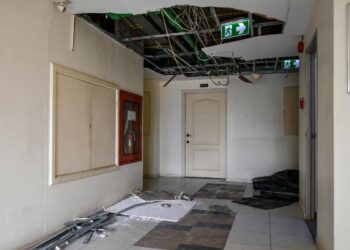Surge in Attacks on Refugee Accommodations in Germany
In recent years, Germany has been under the spotlight concerning its approach to migrants and refugees. The protection and accommodation of these vulnerable populations have become contentious, leading to alarming trends in politically motivated violence. A recent report from Die Linke reveals significant increases in attacks on refugee accommodations throughout 2024, which provides insight into the shifting attitudes within parts of German society.
Overview of the Data
According to the German authorities, the number of politically motivated attacks on refugee accommodations rose by 22% in 2024, with a total of 218 reported incidents. This surge in hostility has raised new concerns about the safety and security of asylum seekers and their living conditions in Germany. The report specifies a range of violent acts, highlighting both physical attacks and various forms of intimidation.
Types of Incidents Reported
The incidents reported in the data encompass a grim array of violence and intimidation tactics. Here’s a breakdown of the specific types of attacks recorded in 2024:
-
Violent Attacks on Residents:
- Aggravated Assaults: 12
- Assaults: 7
- Arson Incidents: 4
- Severe Arson Cases: 2
- Explosions: 2
- Violations of Explosive Laws: 1
- Intimidation and Vandalism:
- Property Damage: 56 instances
- Use of Unconstitutional Symbols: 55 occurrences
- Hate Speech: 39 cases
This alarming trend indicates not only a rise in physical confrontations but also an increase in psychological and emotional warfare waged against refugees and asylum seekers.
Historical Context of Hostility
To understand the current situation, it’s essential to look back at historical trends. Attacks on refugee accommodations spiked dramatically during the migration crisis of 2015-2016. At that time, Germany experienced nearly 1,000 attacks within a single year. These figures reflect the intensity of backlash and resistance to the influx of newcomers, prompting questions about societal integration and acceptance.
The Impact of the Migration Crisis
The aftermath of the 2015-2016 migration crisis revealed deep divisions within German society. While many citizens welcomed refugees with open arms, others viewed them as a threat to social cohesion, jobs, and national identity. The data shows that hostility towards refugees remains present and has seen a resurgence, further complicating the narrative of Germany as a “welcoming” country.
Government and Community Responses
The worrying rise in attacks against refugees puts pressure on both government authorities and community organizations. Questions arise about the effectiveness of current policies aimed at protecting refugees and preventing such incidents.
Legislative Measures
In response to these issues, legislative measures need to be reevaluated. Ensuring the protection of refugees becomes not only a humanitarian responsibility but also a matter of national safety and social harmony. Future policies should be designed to combat hate crimes and provide adequate security for refugee accommodations.
Community Initiatives
Beyond governmental actions, community-led initiatives are vital for fostering understanding and acceptance. Activism, education, and public awareness campaigns can play significant roles in bridging divides and promoting a more inclusive society. By addressing the underlying prejudices and misconceptions about refugees, communities can work to mitigate hostility and promote coexistence.
Conclusion of the Analysis
The increase in attacks on refugee accommodations in Germany highlights a complex interplay of socio-political factors and deep-rooted sentiments among various segments of the population. As attitudes toward refugees continue to evolve, it remains critical to monitor emerging trends and implement effective measures to protect and integrate these vulnerable groups into society.
Stay tuned as this pressing issue continues to unfold in the coming months.






